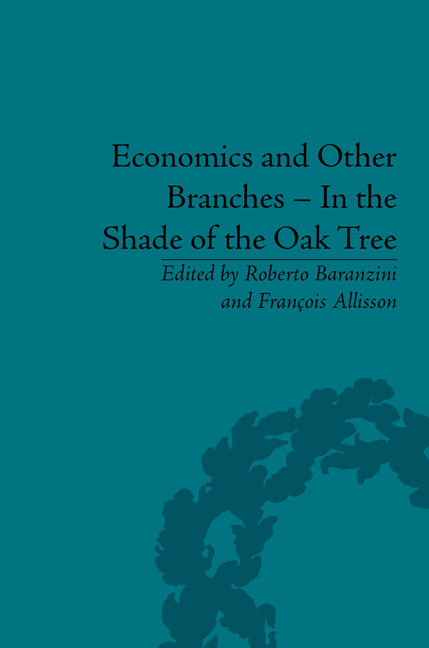Book contents
- Frontmatter
- CONTENTS
- List of Contributors
- List of Figures and Tables
- Introduction
- Pascal Bridel's Bibliography (up to 2013)
- Part I Léon Walras's Economic Thought
- Part II The Spreading of Thought
- Léon Walras's Reception
- The Lausanne School
- French Matters
- Cambridge UK
- Part III Monetary Theory
- 14 Financial Stability: The Role of Central Banks
- 15 The Fisher Relation in the Great Depression and the Great Recession
- 16 Endogenous Money in an Elementary Search Model: Intrinsic Properties versus Bootstrap
- 17 Digression on the Relations between Anthropology and Economics on the Topic of ‘Primitive’ Currencies: A Page in the History of Thought
- Part IV Methodology
- Part V Economics and Humanities
- Economics and Social Sciences
- Some Insights from Visual Arts
- Part VI Economics and Civil Society
- Notes
- Index
17 - Digression on the Relations between Anthropology and Economics on the Topic of ‘Primitive’ Currencies: A Page in the History of Thought
from Part III - Monetary Theory
- Frontmatter
- CONTENTS
- List of Contributors
- List of Figures and Tables
- Introduction
- Pascal Bridel's Bibliography (up to 2013)
- Part I Léon Walras's Economic Thought
- Part II The Spreading of Thought
- Léon Walras's Reception
- The Lausanne School
- French Matters
- Cambridge UK
- Part III Monetary Theory
- 14 Financial Stability: The Role of Central Banks
- 15 The Fisher Relation in the Great Depression and the Great Recession
- 16 Endogenous Money in an Elementary Search Model: Intrinsic Properties versus Bootstrap
- 17 Digression on the Relations between Anthropology and Economics on the Topic of ‘Primitive’ Currencies: A Page in the History of Thought
- Part IV Methodology
- Part V Economics and Humanities
- Economics and Social Sciences
- Some Insights from Visual Arts
- Part VI Economics and Civil Society
- Notes
- Index
Summary
Introduction
More than a century separates the rise of political economics as a separate discipline in the mid-eighteenth century from that of anthropology, which became acknowledged as a distinct discipline from belles-lettres in the nineteenth century. This essay highlights some salient points on the interactions between the two disciplines, with a focus on the subject of so-called ‘primitive moneys’. The authors first show that up until at least the mid-twentieth century, autonomous approaches were taken, after which analyses taking anthropology into account emerged at the heart of heterodox approaches to economics, notably in the work of the interdisciplinary study group that published La monnaie souveraine in 1998. The authors start out on the basis of observations they made in Mexico, while drawing on similar works from Guatemala, amongst others. They ultimately aim to show that this renewed approach to La monnaie souveraine, with its focus on the paradigm of debt, nevertheless excludes the potential contribution of an analysis of primitive currencies in terms of common goods. By taking this dimension into account, the possibility of a new paradigm based on sharing values is raised, allowing movement beyond outdated monetary orthodoxies for an understanding of finance and currency.
Anthropologists and Economists: An Improbable Dialogue on Primitive Currencies
In 1949, two research works were published; one by an anthropologist and the other by an economist, both of which remain authorities as surveys in the literature on so-called ‘primitive’ currencies.
Information
- Type
- Chapter
- Information
- Economics and Other Branches – In the Shade of the Oak TreeEssays in Honour of Pascal Bridel, pp. 213 - 222Publisher: Pickering & ChattoFirst published in: 2014
